Hatching Ideas: As men lose jobs in the COVID-19 pandemic, rural women in West Bengal rear ducks to supplement family incomes
With a dip in family income with their men losing jobs in the pandemic, nearly 2,000 women in rural Cooch Behar take up duck rearing for a livelihood.

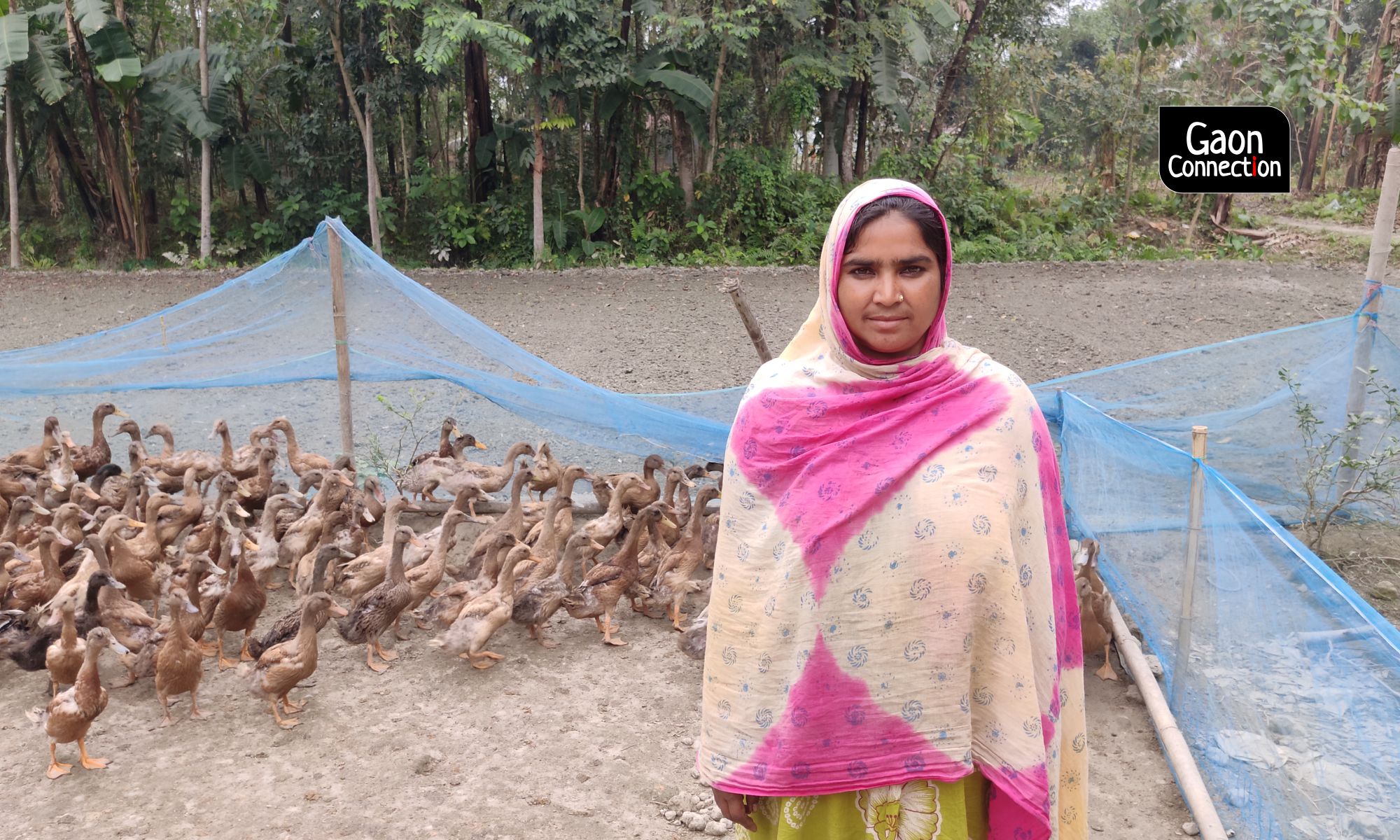
Beauty Bibi, 31 and her husband are earning Rs 3,000 per month by rearing ducks and the earnings are expected to increase in the coming years. Photo: Gurvinder Singh
Cooch Behar, West Bengal
Beauty Bibi, who resides at Silkhuri Bas village in Cooch Behar district, West Bengal, around 700 kilometres from the state capital Kolkata, spent hours on her cell phone watching YouTubevideos on poultry farming. She is grateful to social media as it was there that she discovered she could raise ducks and make a tidy sum for herself and her family out of it.
The income of her husband, Bilal Mian, who has a small agricultural land in the village, was not enough to see them through the pandemic, and she had two kids to feed. Today, 31-year-old Bibi and her husband are earning Rs 3,000 per month by rearing Khaki Campbell ducks and the earnings are expected to increase in the coming years.
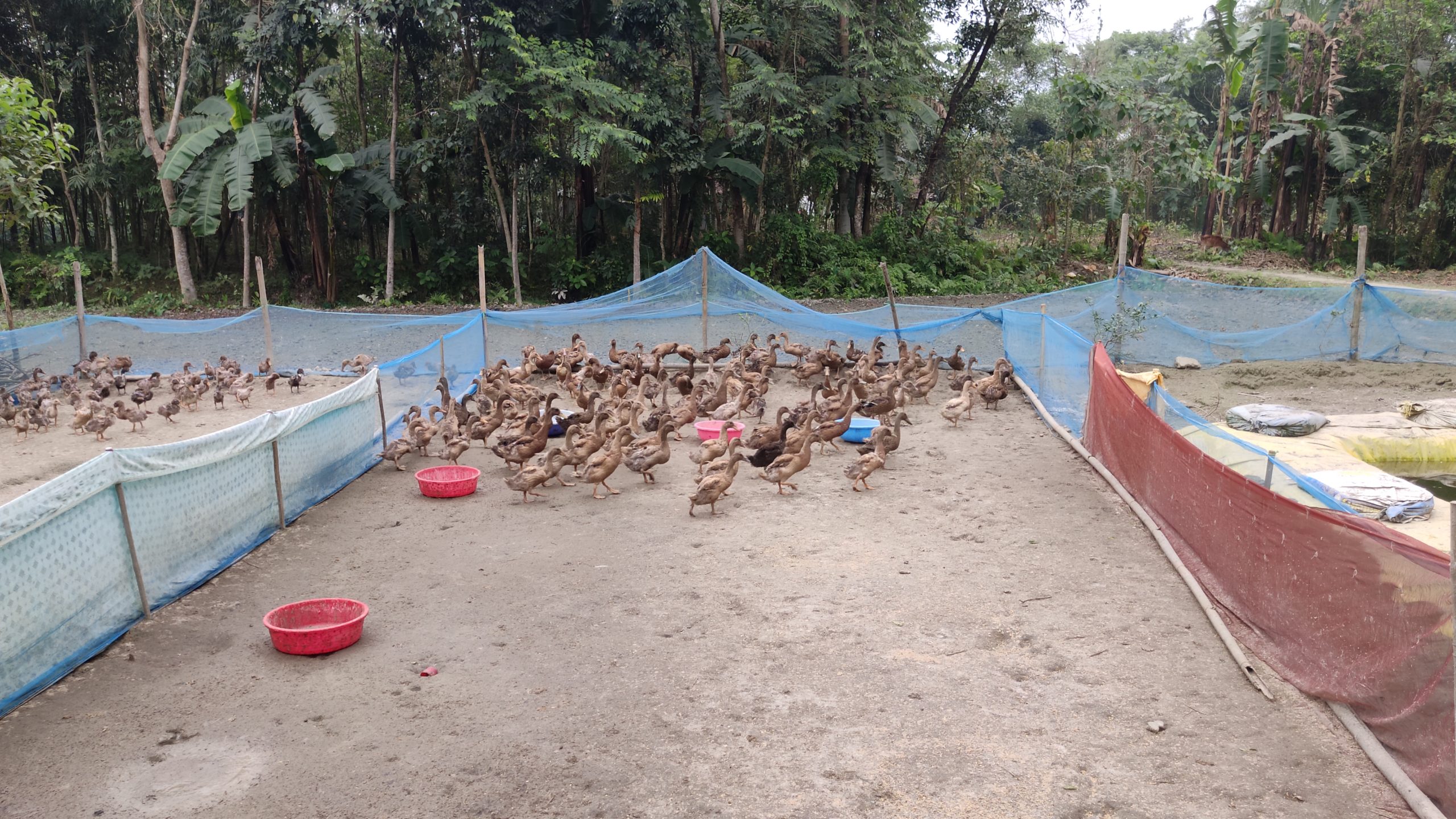
After discussing the idea with her husband, Bibi contacted Satmile Satish Club, a local non-profit that was selling ducklings and eggs of the Khaki Campbell breed. “We bought around 200 ducklings and 25 adults who were soon going to lay eggs,” Bibi told Gaon Connection.
Bibi is not alone. Over 2,000 rural women in Cooch Behar are involved in duck rearing that has been bringing profits to them.
Thirty five-year-old Bulbuli Roy, who lives in Bhogdabri Kesharibari village in Cooch Behar has been in the duck business since early 2019. “It has helped me supplement the income of my husband who is a farmer, and better handle the expenses of our two children,” Roy told Gaon Connection. “These ducks lay more eggs than other breeds which translates into an increased income for us,” she added. The added income is a welcome one as many of the male members of the family have lost their jobs in the pandemic and the women are able to salvage the situation somewhat.
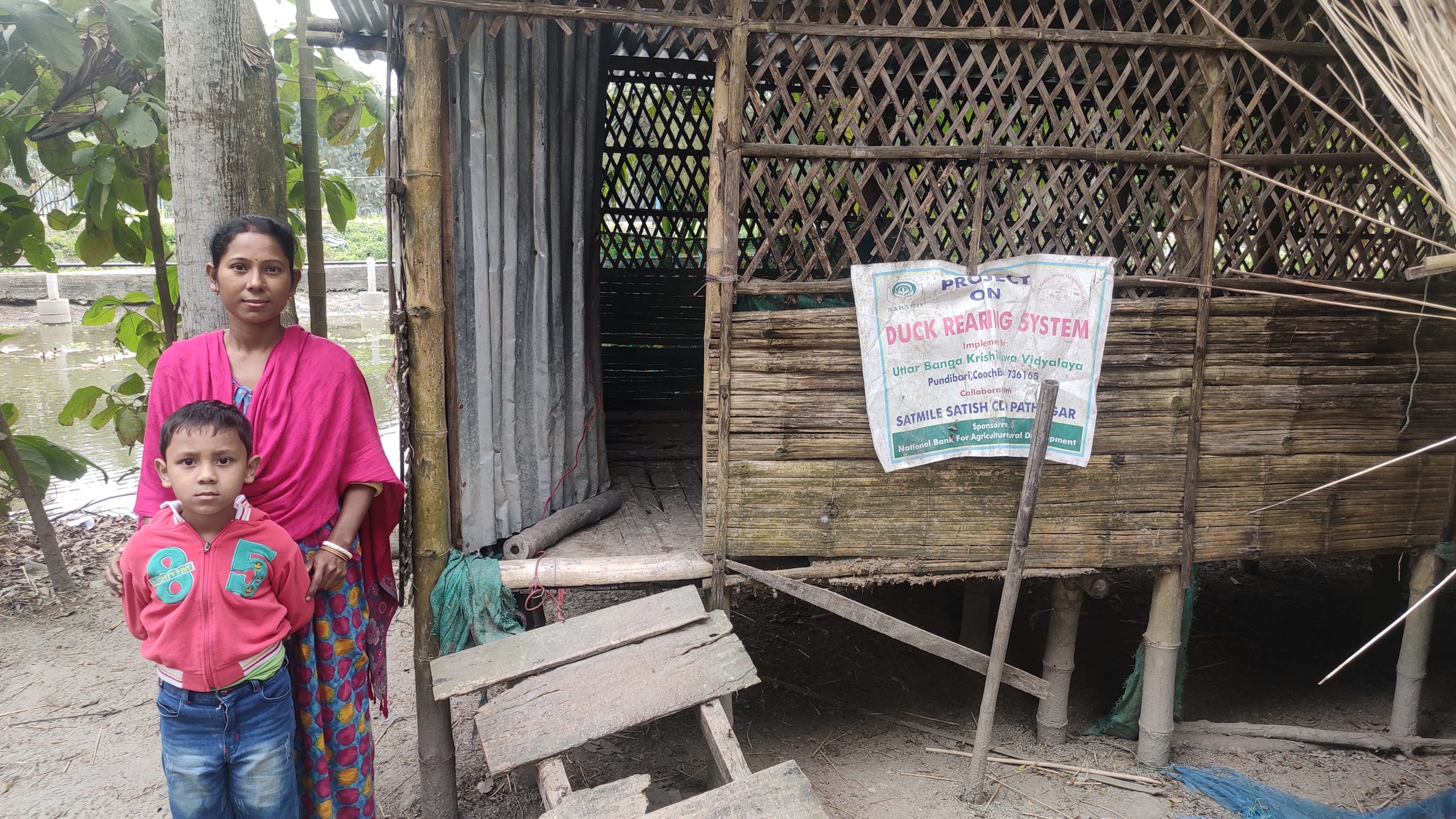
Rural women favour the Khaki Campbell breed of ducks. “This breed is in huge demand because each duck starts laying eggs within six months and gives around 200-250 eggs every year for the next three years,” Purneswar Barman, veterinarian based in Satmile around 140 kms from Kolkata, told Gaon Connection. The vet added that many women in rural Satmile in Cooch Behar had found breeding these ducks a worthwhile enterprise. “These ducks are then sold for meat once they stop laying eggs. Their meat is also in huge demand locally,” he said.
“A year ago, I used to receive around 30-40 calls per day regarding vaccination and treatment of ducks. Now I get almost a hundred calls a day,” Barman said. On some days there are so many calls to him that he suggests treatment over the phone.
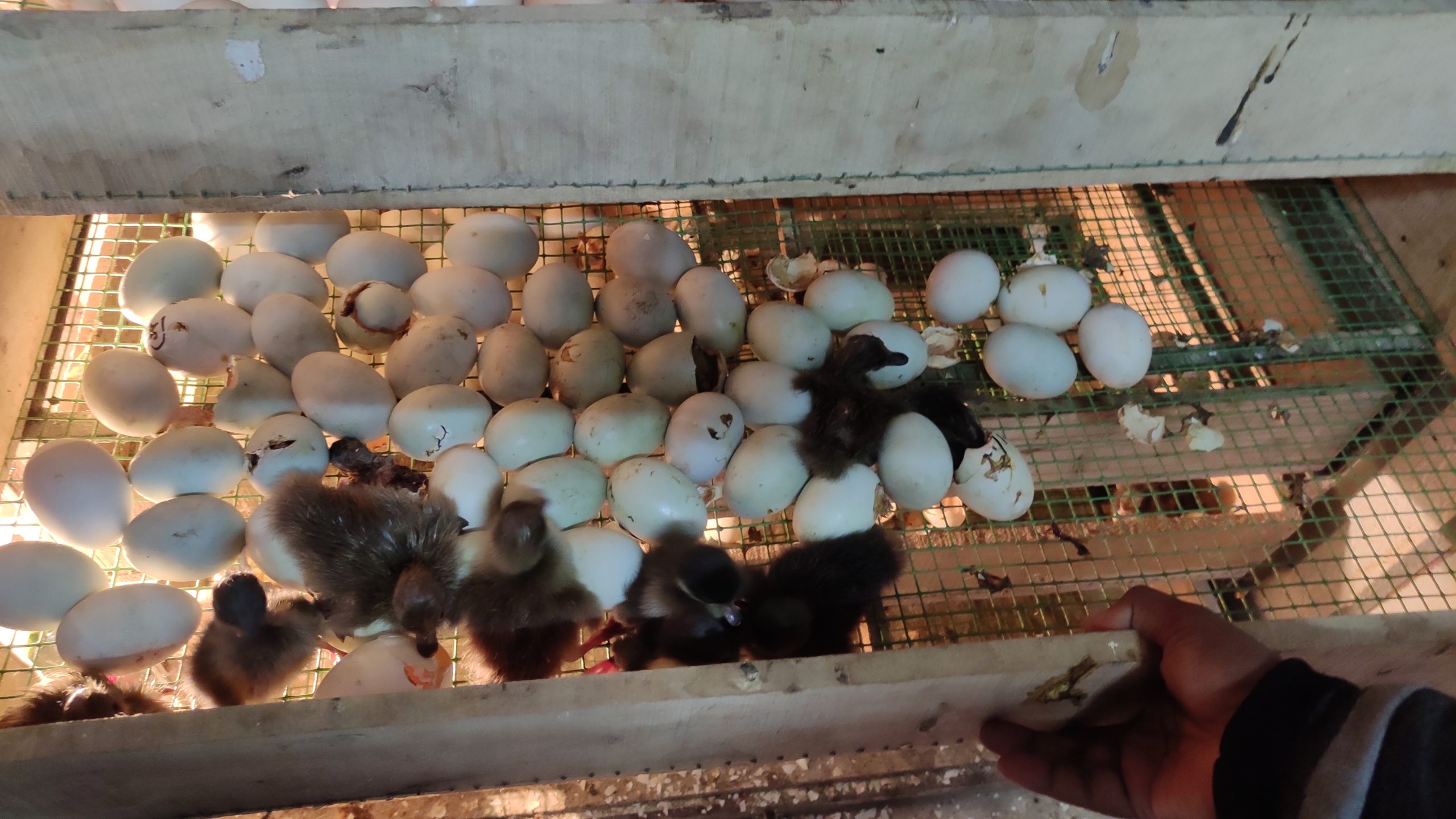
A quick turnaround
According to the women in Cooch Behar, rearing of Khaki Campbell ducks requires an initial investment but results are quick. With some savings she had, Bibi bought around 200 ducklings and 25 adults who were soon going to lay eggs. “The ducklings cost sixty rupees each while the adult ducks cost four hundred rupees each. Within a month, the ducks started laying eggs,” Bibi told Gaon Connection. This breed of ducks lay about 250 to 280 eggs a year compared to other breeds that lay approximately 180- 200 eggs.
The eggs are kept safe indoors usually, said Bibi. Most of them have partitioned off areas outside their huts, in their courtyards or open spaces, and made safe enclosures/coops with nets where the ducklings and ducks are reared and fed.
“We get at least eighteen to twenty eggs every day. The numbers are going to increase once the ducklings are older and start laying eggs after six months,” she said, adding that she has already started earning around Rs 3,000 per month. Bibi expects to earn Rs 12 per egg. Also, if she chooses to, the ducks, once they have stopped laying eggs, can be sold at Rs 350-Rs 400 per bird for meat.
Growing demand
The Satmile Satish Club O Pathagar, a local non-profit working for rural livelihood has played a pivotal role in introducing Khaki Campbell locally. “We realized that there was a huge gap between the demand and supply for duck eggs and meat in Cooch Behar. We did a research and found that Khaki Campbell lays more eggs as compared to others and can be also utilized for meat,” Amal Roy, secretary of the club, informed Gaon Connection.
But the breed was not available locally. So they procured the ducklings from Salem district in Tamil Nadu, nearly 3,000 kms away. But the mortality rate of the ducks was high during transit and there was considerable loss. “We then installed incubators and started purchasing Khaki Campbell duck eggs from the local women in our own villages who were already rearing these ducks,” said Roy.
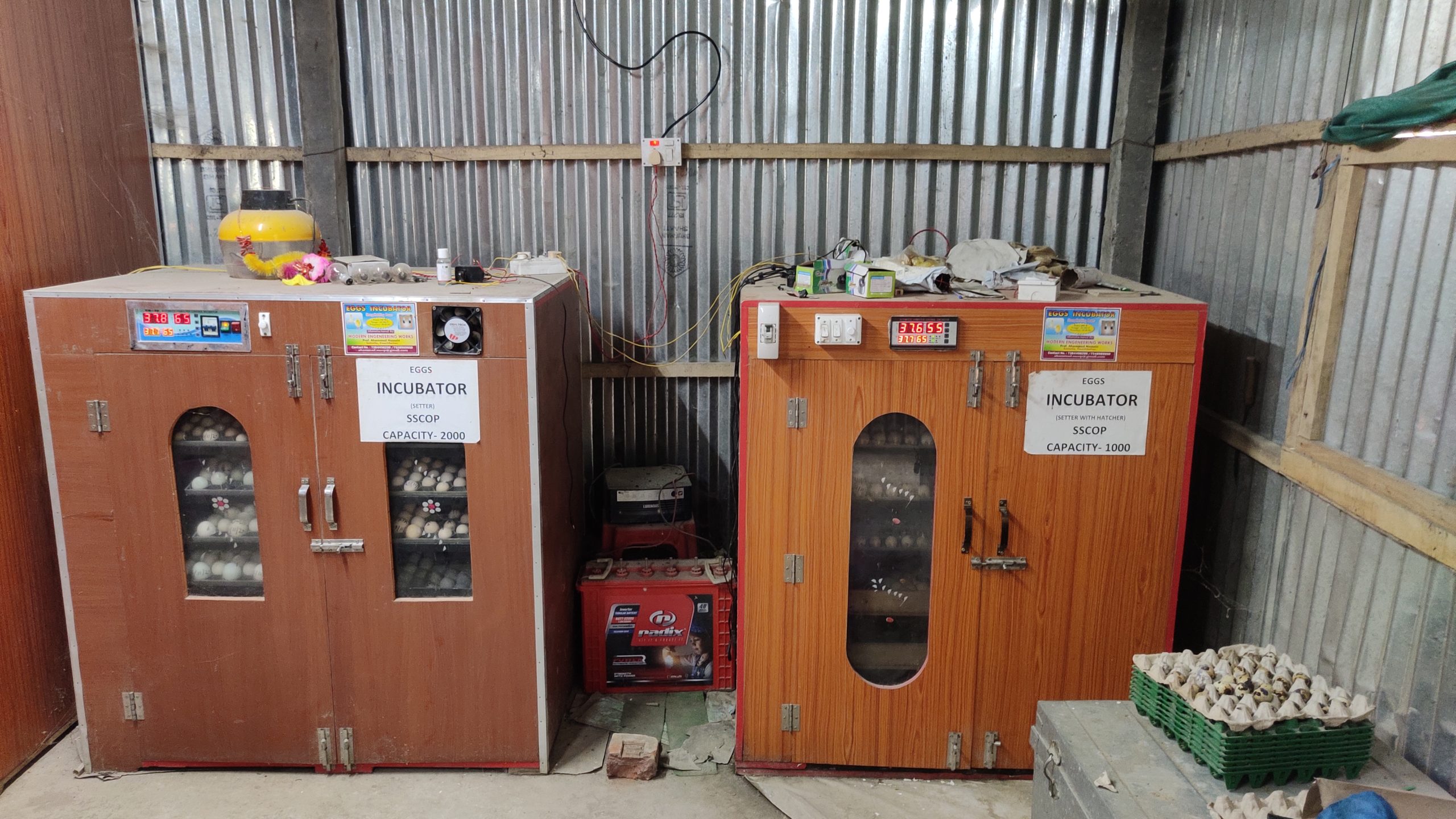
The non-profit bought the eggs by paying Rs 12 per egg that is a rupee more than the market price, and the women were happy to sell it to them. “We incubated the eggs and once they hatched, we sold the ducklings to women who wanted to rear them,” he explained adding that the supply was still not enough to fulfill the demand. The non-profit sells about 5,000 ducklings a month to both Self Help Groups and individual women. Despite the fears brought about by the virus about consuming poultry, and the decline of several poultries in other parts of the country, the demand for duck meat in Cooch Behar is quite high. Also, those who had migrated out of the area have returned home and are taking up duck rearing too.
Sound initiative
A sudden drop in the family income due to the pandemic has enthused many school-going girls like 17-year-old Jhunuka Khatun and her younger sister 15-year-old Renuka, to take to duck rearing as well. “We decided to venture into the profession because the income of my father went downhill during the lockdown,” Renuka told Gaon Connection. He was working in Bhutan assisting a mason, but had to return home due to the pandemic.
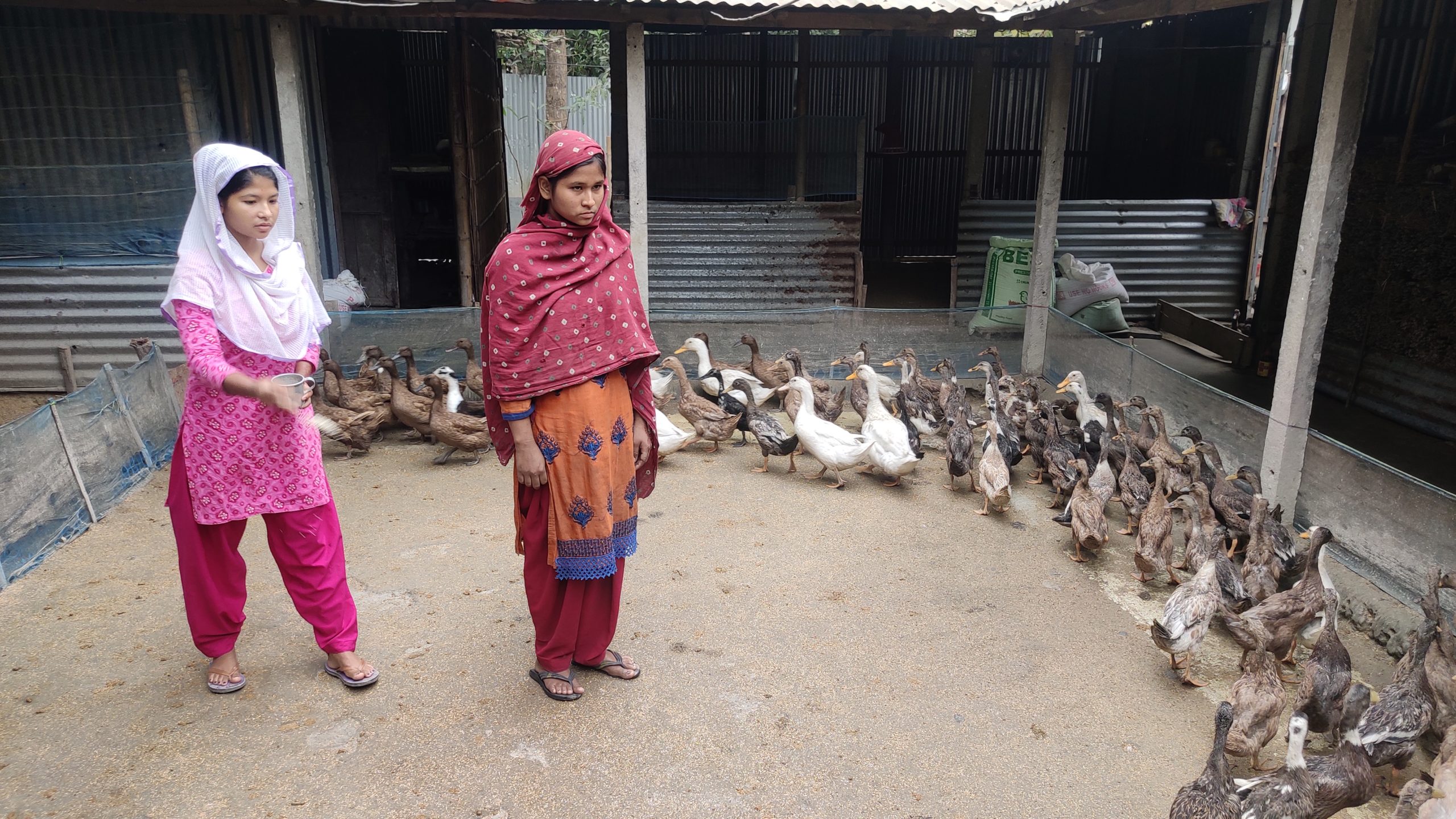
The sisters who reside in Boroilajan village in Cooch Behar, came to know about duck rearing from their father’s friend. “We used the verandah outside our mud house for rearing ducks. Our father supported our endeavour after his initial reluctance. He brought around 200 ducklings and 15 egg laying ducks,” she said. While they have not been able to save any money from it yet, they have made enough to feed the ducklings that they hope will fetch them money in six months’ time. They invested about Rs 46,000 which they hope to recover once the ducks start laying eggs.
“We were really proud of our daughters who decided to become entrepreneurs at such a tender age. The economic condition has deteriorated during the lockdown and it’s difficult to sustain the family,” Saha Alam Mian, their father told Gaon Connection. The 40-year-old who worked as a labourer, has had no work for the past several months and when he saw the poultry business was bringing in money for others, he decided to invest in it. “At least, my daughters are trying to do something on their own which is a good initiative. It might help them fund their own education expenses,” said the proud father.
There have been other positive spin offs from the duck rearing enterprise. It has led to an increase in income for several other women appointed by the state government for the maintenance of livestock. Prani Mitra, as they are called, are part of the animal resource development department. “We visit homes and administer vaccines to the livestock and also treat them,” Jyotika Adhikary Burman, a Prani Mitra based in Cooch Behar told Gaon Connection.
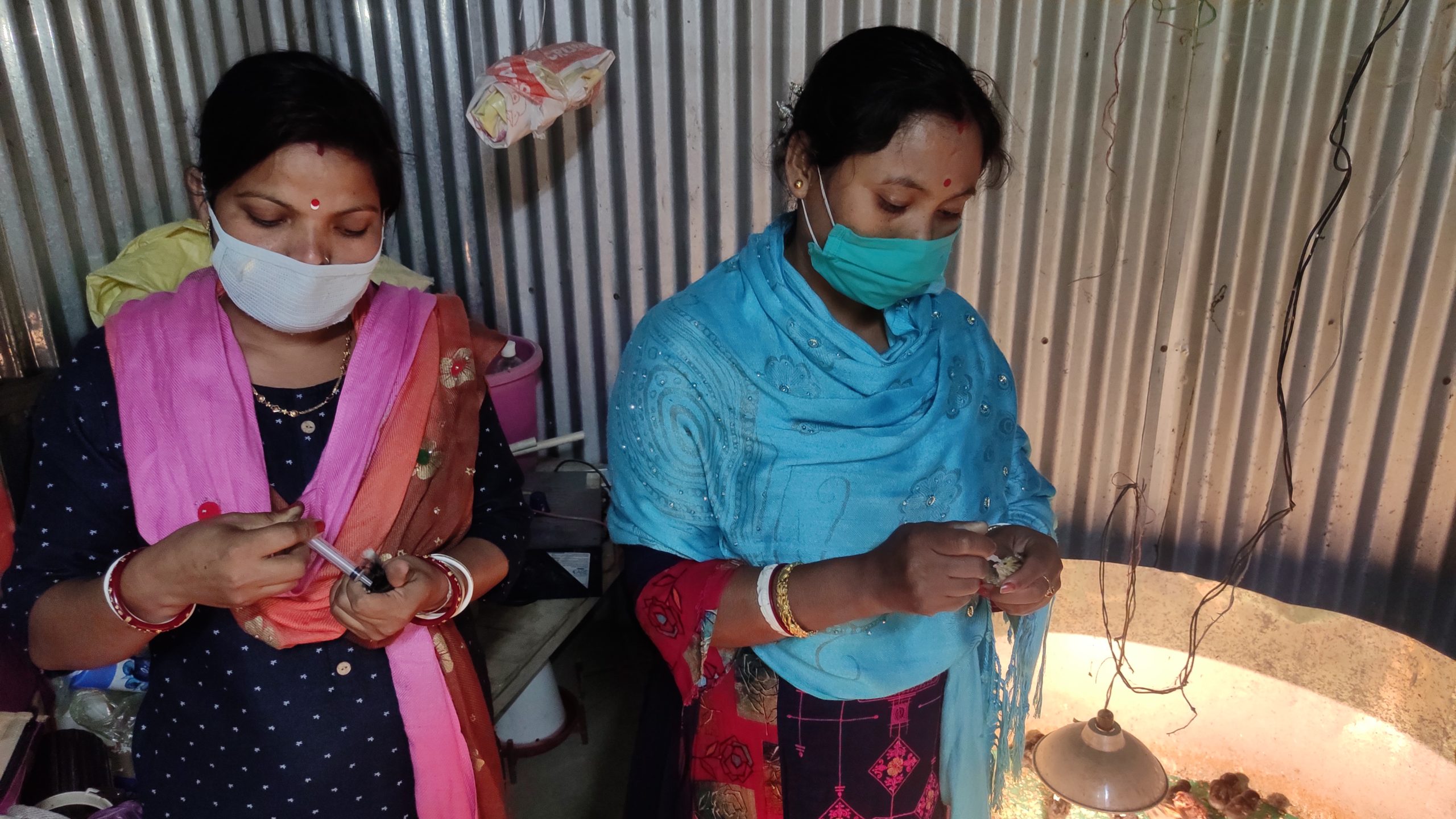
“We sometimes earn around nine to ten thousand rupees a month as we visit homes to administer vaccinations and treatment to the ducks,” she said. The women earn Rs 5 to Rs 7 per duck to vaccinate each bird.
“We estimate that numbers of women involved in duck rearing could be much higher. While around 1,500 women have bought ducklings from us, they sometimes sell the ducklings to other women who want to start the business,” added Roy.

